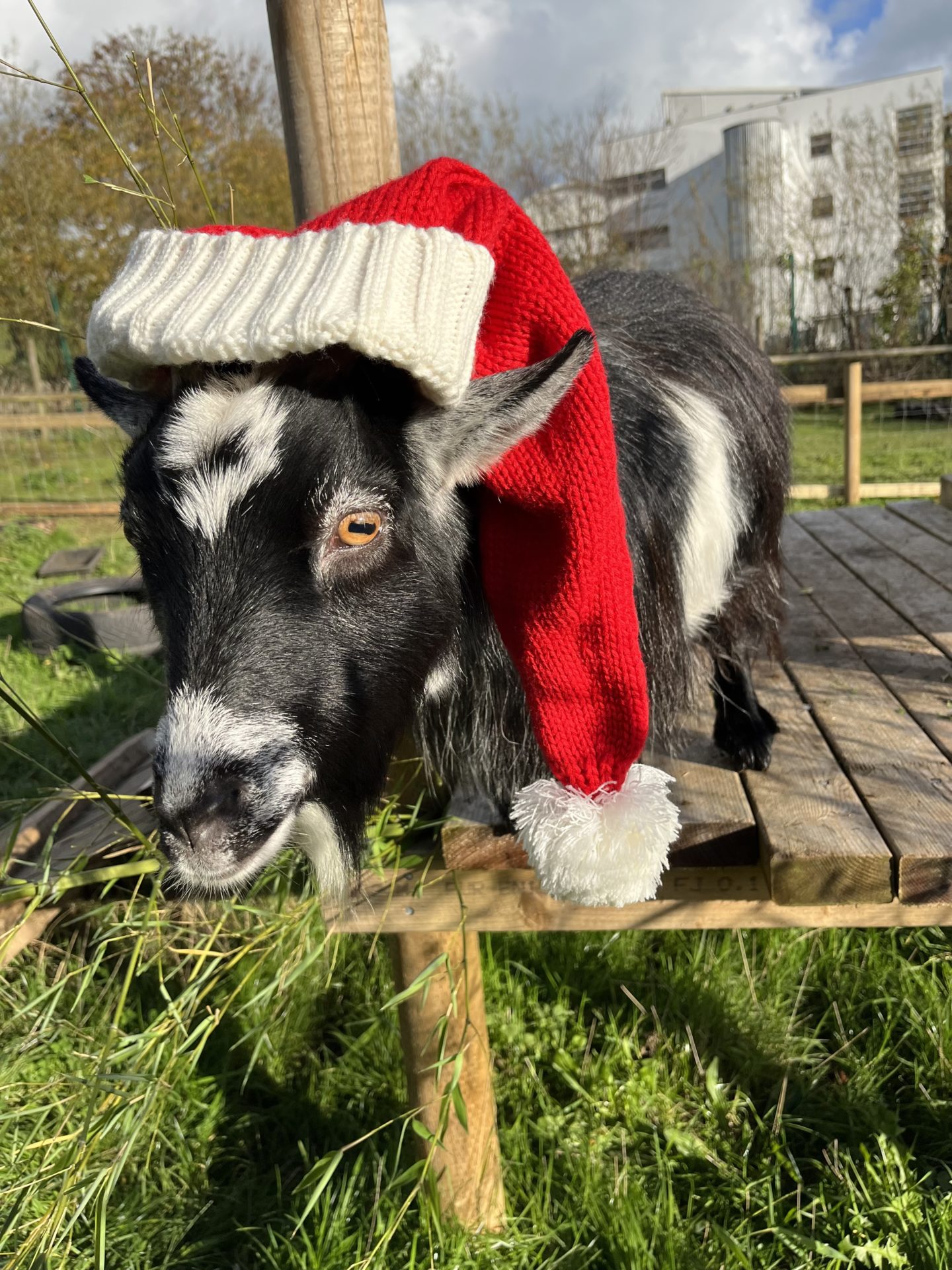8th December 2022
At Christmas, it’s tempting, when watching telly and eating your favourite festive treats, to share them with your adorable furry friends. But, Laura Flynn and her students at South Devon College, are urging animal owners to think again because one human’s treat can be an animal’s trauma.
And winter as a whole is a time when our animal companions need a bit of extra care and attention.

It’s estimated that 17 million households in the UK have a pet with dogs leading in popularity at 34% followed by cats at 28%.
Indoor birds are in third place, followed by rabbits, hamsters, domestic fowl, tortoises and turtles, guinea pigs, horses and ponies, snakes, lizards and pigeons.
Laura Flynn said: “Whatever pet you have, whether it’s furry or scaly, it’s important to keep it safe and well over the coming months.”
Here’s Laura Flynn and South Devon College Animal Care team’s top tips on how to keep your pet safe this winter and Christmas.
- Remember that onions, cooked bones, raisins and chocolate are all toxic for dogs. Don’t be tempted to give them a piece of your Christmas cake
- Keep your pets inside if you’re aware of fireworks in your area. Fireworks can easily spook animals like cats, dogs, rabbits and guinea pigs. To help relieve stress ensure they are safely inside, close the curtains, put on the TV, and sit calmly with your animal
- Hamsters are prone to going into torpor (semi-hibernation) when it’s too cold so make sure they are away from drafts and are kept warm with extra bedding
- Rabbit hutches should be winter proofed with tarpaulin or even better put inside a shed or covered area or moved into your home
- All animals that live outside will benefit from extra bedding to keep them warm and well through the cooler months
- Check water bowls and bottles daily to make sure they aren’t frozen. Bottle covers can be placed over the bottles to prevent this. Alternatively bubble wrap is a good insulator
- When it gets really cold fish ponds are at risk of freezing over. An easy fix is to place a plastic ball that floats into the pond to help break up any forming ice. Ponds freezing over poses risk of being under oxygenated
- If you keep livestock (goats, sheep) check their hooves more regularly. The wet weather causes the ground and mud to be wet and if they are stood around in mud for long periods of time they can get hoof rot or mud fever
- It is important to keep rabbits and guinea pigs off of the grass early in the mornings when we have frost. It can upset their tummies if they eat frozen grass due to the higher water content
- If bad weather stops you walking your dog be sure to provide enrichment to stimulate them in other ways. Scattering some of their feed onto a towel and rolling the towel up can encourage them to use their noses to seek out their food. A simpler option is to simply scatter some of their dry biscuits in a hallway or on the kitchen floor – this is called scatter feeding and encourages them to find their food.







